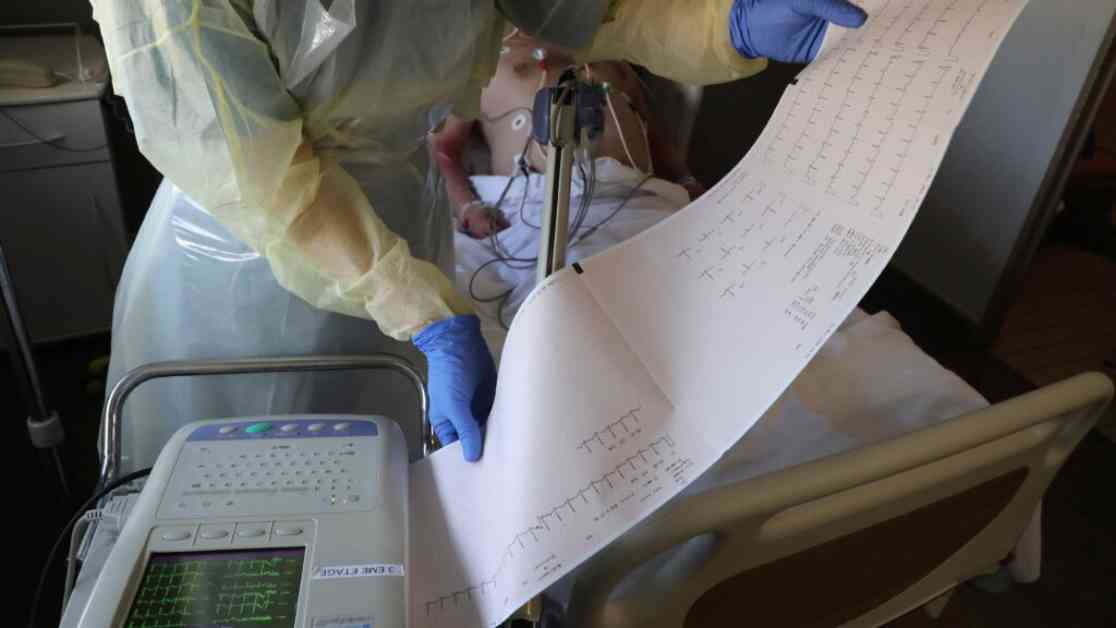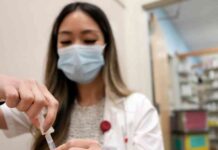Navigating Health Risks: Abortion, Shingles, Extreme Heat, and Cardiac Arrest
Health is a topic that impacts everyone, regardless of age, gender, or background. From sudden cardiac arrest to reproductive health concerns, it’s crucial to stay informed and proactive in managing our well-being. In this article, we delve into various health risks and issues that are prevalent in society today, shedding light on important research, surveys, and initiatives aimed at improving health outcomes for all.
### The Challenge of Sudden Cardiac Arrest
Sudden cardiac arrest is a frightening condition that can strike seemingly healthy individuals without warning. While advancements in medical technology have provided tools like CPR and defibrillators to help save lives, the survival rate for sudden cardiac arrest outside of a hospital remains low, with only about 10% of individuals surviving the event.
Cardiologist Sumit Chugh emphasizes the urgency of addressing sudden cardiac arrest, noting that it affects a significant number of Americans every day. Despite its impact, the condition is still considered rare in the community, with approximately 50 people per 100,000 affected. Researchers are actively working to better understand the risk factors associated with sudden cardiac arrest and develop improved interventions, including cell-based therapies, to enhance survival rates.
### Abortion Access and Reproductive Health Concerns
Reproductive health is a critical issue for many individuals, particularly women of reproductive age. A recent survey conducted by KFF’s Women’s Health Survey revealed that one in seven reproductive-age women in the U.S. have had an abortion. The survey also highlighted several key findings related to abortion policies and access to reproductive healthcare:
– The majority of reproductive-age women believe that abortion policies should not be determined at the state level, indicating a widespread concern for consistent access to safe and legal abortion services.
– Many survey respondents expressed worries about potential barriers to obtaining abortions, either for themselves or someone close to them, in life-threatening situations.
– Specific insights from Florida and Arizona underscored the need for increased awareness of abortion laws and access to medication abortion options in these states.
The survey results underscore the importance of comprehensive reproductive health policies and access to abortion services to support the well-being of individuals seeking reproductive care.
### Enhancing Confidence in Vaccines
Vaccines play a crucial role in preventing infectious diseases and saving lives. However, concerns about vaccine safety and efficacy can contribute to hesitancy among some individuals. Virologist Gregory A. Poland shares his personal experience of experiencing tinnitus after receiving a Covid vaccine, highlighting the need to address rare adverse effects associated with vaccination.
Understanding the mechanisms behind vaccine-related side effects is essential for mitigating risks and building public trust in vaccination programs. By addressing individual concerns and promoting transparency in vaccine development and monitoring processes, health authorities can enhance confidence in vaccines and promote widespread immunization against preventable diseases.
### Ultra-Processed Foods and Health Risks
The rise of ultra-processed foods has raised concerns about their impact on public health, particularly in relation to cancer risk. Oncologist Nicholas DeVito draws parallels between the proliferation of ultra-processed foods and the historical prevalence of tobacco use, noting that both factors contribute to an increased risk of cancer development.
DeVito’s analysis underscores the need for regulatory measures to curb the consumption of ultra-processed foods and promote healthier dietary habits. By addressing the root causes of dietary-related health risks, policymakers and healthcare providers can work towards reducing the burden of chronic diseases linked to poor nutrition and lifestyle choices.
### Addressing Workplace Heat Safety
Extreme heat poses significant health risks, especially for individuals working in outdoor or high-temperature environments. Recent rallies by airport workers in Charlotte, N.C., and Phoenix highlighted the need for improved workplace protections against heat-related illnesses, including access to water, cool break rooms, and heat illness training.
The escalating temperatures due to climate change underscore the urgency of implementing heat safety measures in workplaces across various industries. The Biden administration’s proposed rule on heat safety regulations aims to safeguard workers from excessive heat exposure and ensure adequate preventive measures are in place to protect employee health and well-being.
### Shingles and Cognitive Decline Risk
Shingles, a reactivation of the varicella-zoster virus that causes chickenpox, has been linked to a higher long-term risk of subjective cognitive decline, according to a recent study published in Alzheimer’s Research & Therapy. The study findings suggest a potential association between shingles infection and cognitive impairment, particularly in individuals who carry genetic risk factors for dementia.
Researchers emphasize the need for further investigation into the mechanisms underlying the link between shingles and cognitive decline to develop targeted interventions and preventive strategies. By raising awareness of the potential cognitive risks associated with shingles infection, healthcare providers can better support individuals at risk of cognitive impairment.
### Advancing Cancer Surgery Technologies
The Biden Cancer Moonshot initiative aims to accelerate progress in cancer research and treatment, with a focus on improving surgical outcomes for cancer patients. The recent announcement of $150 million in ARPA-H awards to develop technologies for real-time tumor detection during cancer surgeries marks a significant milestone in advancing surgical precision and efficacy.
The integration of innovative technologies in cancer surgery holds promise for enhancing treatment outcomes and reducing the need for additional procedures. By investing in cutting-edge surgical tools and techniques, healthcare providers can elevate the standard of care for cancer patients and improve long-term survival rates.
In conclusion, navigating health risks requires a multifaceted approach that encompasses research, policy initiatives, and public awareness campaigns. By staying informed about emerging health trends and advocating for evidence-based interventions, individuals and communities can empower themselves to make informed decisions and prioritize their well-being. Through collaborative efforts across healthcare sectors and government agencies, we can foster a culture of health and resilience that benefits everyone.

















